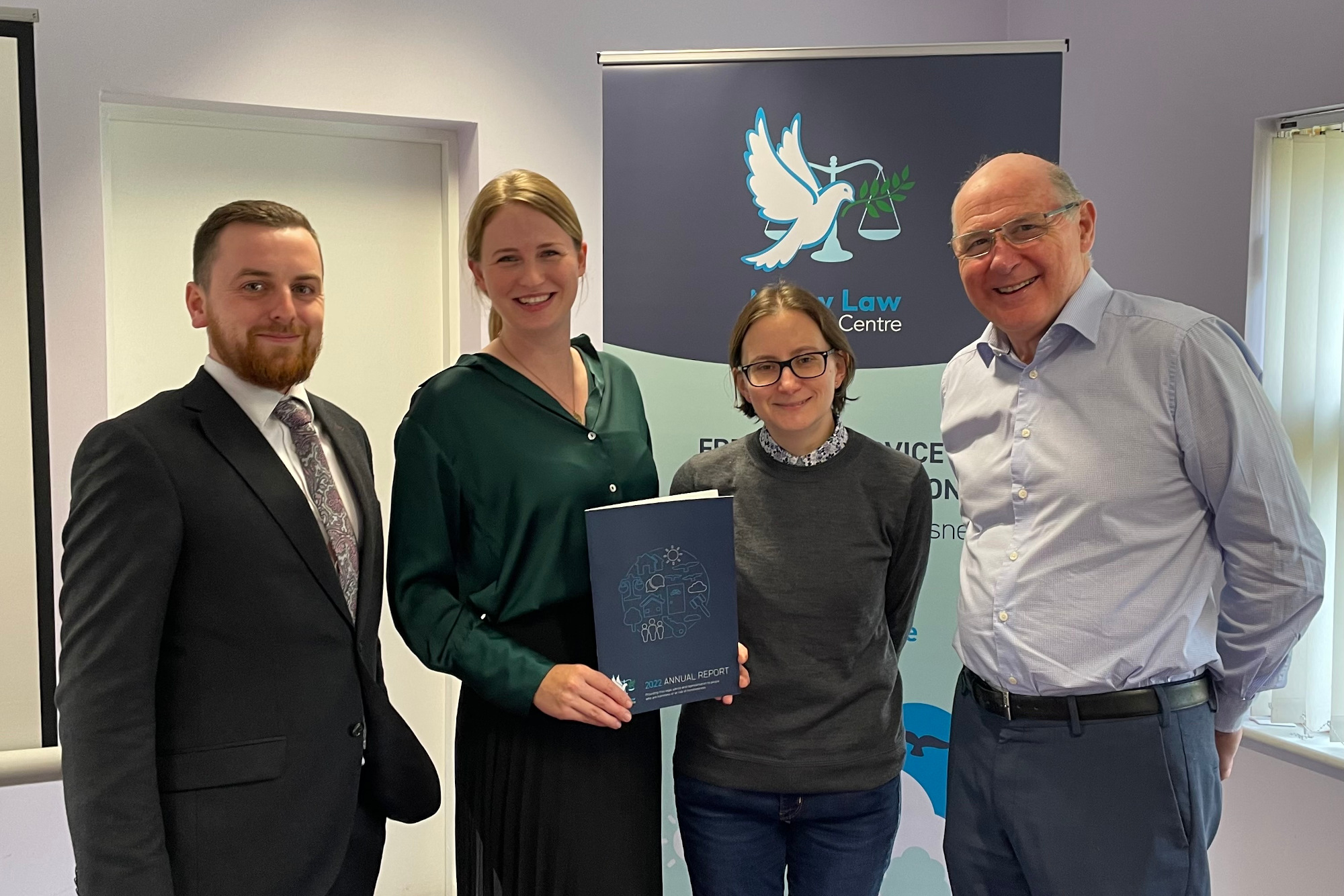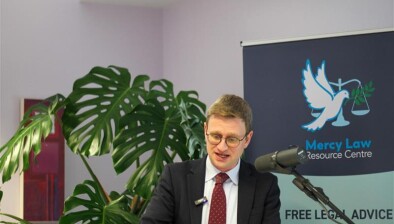Mercy Law Resource Centre facing rising demand amid ‘soaring homelessness’

Pictured (left–right): Mercy Law Resource Centre solicitor Adam Boyle, managing solicitor Aoife Kelly-Desmond, Dr Sarah Hamill and MLRC board chair Edward Gleeson.
Mercy Law Resource Centre (MLRC) saw a 10 per cent increase in requests for legal assistance and a dramatic 250 per cent increase in clients seeking to access emergency homelessness accommodation last year, according to its latest annual report.
The independent law centre, which provides free legal advice and representation to people who are homeless or at risk of homelessness, received over 2,110 phone calls in 2022 and triaged 560 queries.
It opened 368 new advice cases, of which 262 involved social housing and 104 involved homelessness. There was a significant increase in the number of cases coming from outside of Dublin, now making up around half of referrals.
Dr Sarah Hamill, a professor in Trinity Law School and a member of the MLRC board, formally launched the annual report at an event yesterday afternoon.
Commenting afterwards, managing solicitor Aoife Kelly-Desmond said: “Coming out of the pandemic, there was a sense of relief and hope. However, for those at the brink of homelessness, 2022 brought further challenges with levels of homelessness soaring.
“MLRC worked hard to meet rising demand for our service in 2022, with new requests for legal assistance up 10 per cent on the previous year. Most worryingly, we saw a 250 per cent increase in people looking for help to access emergency homeless accommodation in 2022.
“As pressure on the system grew, we observed a notable deterioration in the quality and robustness of decision-making around homeless assessments, with legal intervention increasingly required to secure access to basic shelter for our clients. This trend has continued into 2023.”
She added: “With the launch of this report we are calling on government to ensure local authorities are sufficiently resourced to be able to meet the needs of their communities, to ensure proper application of fair procedures and to uphold the values of the public sector equality and human rights duty.”











